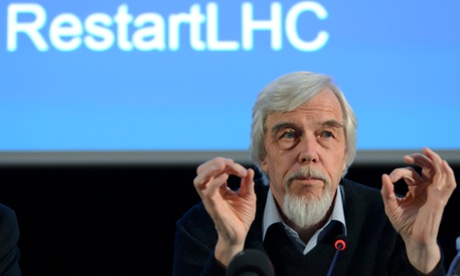The hunt for the Higgs boson, a theoretical particle thought to convey mass on some elementary particles, is a one horse race right now. Since the temporary closure of the Large Hadron Collider at Cern near Geneva last year, the only people with a chance of finding the elusive particle work on the Tevatron at Fermilab near Chicago.
I've written about the brilliant Colliding Particles project here before. It is run by a group of physicists who are involved in the Higgs hunt. They make videos to explain not just their particular area of physics, but the broader role and importance of studying nature at its most fundamental level. The videos are beautiful and inspiring. And that can't be easy when you're dealing with particle physics.
I've posted the latest video installment from the team above and once again it gives a wonderful insight into the way physicists work. The most fun part though has to be the discussion about the most acceptable phrase to explain what brought Cern's machine down shortly after it was powered up.
An electrical failure? A minor technical malfunction? A giant subterranean deathbang?
While I'm here, if you missed the Daily Show's unforgettable visit to Cern, you can see it here.










